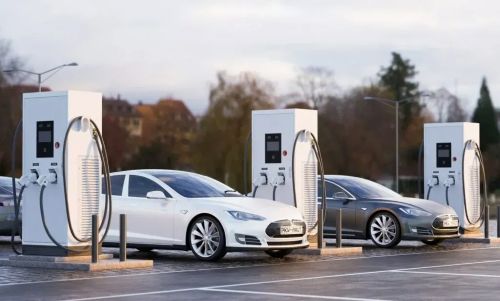


How to Start and Succeed in the Business EV Charging Industry
Powering the Future: Launching a Business in EV Charging
LiCB Charge, a leading EV charger manufacturer in China, delivers reliable AC and DC electric vehicle charging stations along with comprehensive charging solutions.
Electric vehicles (EVs) are no longer a niche—they’re a mainstream movement. As governments enforce tighter emissions regulations and consumers prioritize sustainability, the demand for EVs is accelerating. But while EV adoption rises, charging infrastructure still lags behind, creating a prime opportunity for entrepreneurs.
What Is Business EV Charging?
Business EV charging refers to installing and operating EV charging stations for public, private, or commercial use. Unlike residential setups, business EV chargers serve a broader audience: retail shoppers, office employees, hotel guests, fleets, and the general public.
Operators can monetize their stations by charging per session, per kilowatt-hour, or offering subscriptions. Some businesses offer free charging as a value-added amenity to attract customers, while others build fully commercial networks or mobile charging fleets.
How to Start an EV Charging Business
Research the Market
Begin with local EV ownership trends, charging infrastructure gaps, and user behavior. Look for underserved areas, peak usage patterns, and potential partners like shopping centers, hotels, or municipalities.
Choose Strategic Locations
High-traffic, convenient sites like malls, hotels, office parks, or highways see the most utilization. Consider range anxiety and partner with property owners to secure visible, accessible spots.
Navigate Regulations and Incentives
Understand zoning laws, electrical codes, and safety standards. Coordinate with utility providers and explore local or federal incentives such as grants, rebates, and tax credits that can offset installation costs.
Develop a Business Plan
Your plan should outline your business model (e.g., paid public charging, free amenity, or fleet-focused), target users, technology needs (Level 2 vs. DC fast chargers), marketing strategy, maintenance plan, and growth roadmap.
Secure Funding
EV charging stations require upfront investment, especially fast chargers. Explore funding through investors, bank loans, government programs like NEVI (U.S.) or AFIR (EU), and utility company rebates.
Select Technology and Hardware
Choose chargers that support features like smart load management, mobile apps, secure payment options (NFC, RFID), and are OCPP-compliant for future-proof interoperability. Cybersecurity and real-time diagnostics are also key.
Promote Your Services
Get listed on EV apps like PlugShare and ChargeHub. Build an SEO-optimized website with live status and reservation options. Use digital ads, signage, and partnerships with EV makers or sustainability groups to raise awareness.
Why Invest in Business EV Charging?
New Revenue Stream: Monetize energy, parking time, or access subscriptions.
Attract Customers: EV charging increases dwell time and loyalty at retail, hospitality, and dining venues.
Future-Proof Assets: Charging stations add long-term value to commercial properties.
Support ESG Goals: Enhance sustainability metrics and reduce your carbon footprint.
Leverage Incentives: Access green certifications and financial support through public programs.
Serve Fleets and Staff: Lower operating costs and encourage eco-friendly commuting.
Conclusion
EV charging is more than a service—it’s a smart, future-ready investment. With growing demand and a tech-driven ecosystem, launching a business in EV charging offers both profit potential and a chance to lead in the transition to clean energy. Now is the time to plug into the future.Know more about Google SEO Directory
